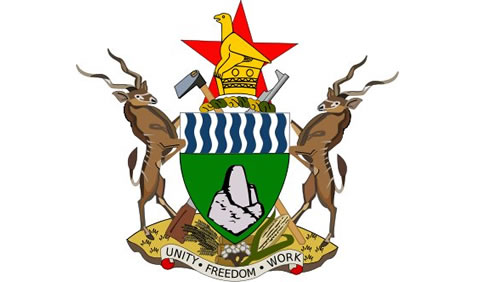Zimbabwe's government is scrambling to re-establish lines of credit pledged by Southern African Development Community (SADC) member countries four years ago, as it seeks to rescue the faltering economy debilitated by an unrelenting liquidity crunch, a government minister has confirmed. The country is mired in a $6 billion external debt for which it has outstanding arrears of close to $3 billion.
The arrears resulted in multilateral and bilateral funders ending all forms of lending to the country, which went through its worst economic crisis in history, characterised by runaway inflation and commodity shortages, during the decade to 2008. The country was forced to abandon its currency, which had begun experiencing an hourly erosion of value by 2008, and settled for a multi-currency regime dominated by the greenback.
While the hard currency regime brought with it a modicum of stability, the economy again touched off a slippery slope two years ago as the stock of money shrunk due to escalating imports, which have been higher than exports since 2009. The situation has compounded the country's economic woes and forced many industries, unable to compete against cheaper imports, to close, worsening an already grave unemployment situation.
Speaking to the Financial Gazette, Deputy Minister of Finance and Economic Development, Samuel Undenge, said government would be pursuing credit facilities pledged by neighbouring countries to help save failing companies.
“Our companies are confronted with capital constraints, high cost of borrowing and unavailability of long-term financing. The ministry is making frantic efforts to mobilise resources locally and externally, through pledged lines of credit under SADC initiated facilities,” Undenge told C&M.
SADC countries agreed at an Extraordinary Summit held in Swaziland in 2009 to bail out Zimbabwe, which had just formed a coalition government with former opposition parties to end a protracted battle for power in the political arena that had been partly responsible for the economic crisis. The rescue package was meant to come in the form of credit lines to assist Zimbabwe to resuscitate its struggling companies. However, none of the agreed credit lines have so far been availed to Zimbabwe.
These include a $70 million line of credit pledged by the government of Botswana, a $50 million facility from Angola and a pledge from the South African government whose quantum was subject to bilateral negotiations. Botswana's government pledged in 2009 to support Zimbabwe and the two countries proceeded to sign a Memorandum of Understanding in 2012 that could have seen Botswana releasing 500 million pula in lines of credit to rescue Zimbabwe's struggling companies.
Under this agreement, 70 percent of the facility was earmarked for the manufacturing sector while the remaining 30 percent would go towards other sectors. The agreement was signed by Botswana's Finance and Development Planning Minister, Kenneth Matambo and his then Zimbabwean counterpart Tendai Biti. South Africa also expressed its willingness to assist Zimbabwe's economic revival efforts but could not indicate figures.
The Zimbabwean firms are failing to access cheap finance for recapitalisation, resulting in many of them closing or scaling down operations, throwing thousands of workers on the street, a situation which poses serious headaches for the government. The liquidity constraints are aggravated by the country's high import position.
Statistics indicate that Zimbabwe's import bill for the year 2013 stood at close to $7,8 billion against exports of about $3,5 billion. As at February 2014, the country's import bill was a staggering $967 million against exports of about $470 million, indicating a doubling in imports. The high import bill coupled with the fact that industry is operating significantly below capacity is untenable and does not augur well for the economy's growth.
Zimbabwe's economy has been declining for the past decade due to a protracted political dispute among the major parties. The country's Finance Ministry, under Patrick Chinamasa, has been fighting to secure financial investments into the country which has proved to be difficult as international funders have been reluctant to unlock funding.
- fingaz
 Concern over Masvingo black market
Concern over Masvingo black market  Kenya declares three days of mourning for Mugabe
Kenya declares three days of mourning for Mugabe  UK's Boris Johnson quits over Brexit stretegy
UK's Boris Johnson quits over Brexit stretegy  SecZim licences VFEX
SecZim licences VFEX  Zimbabwe abandons debt relief initiative
Zimbabwe abandons debt relief initiative  European Investment Bank warms up to Zimbabwe
European Investment Bank warms up to Zimbabwe  Young Investment Professional (YIP) Graduate Programme 2019
Young Investment Professional (YIP) Graduate Programme 2019 











 Young Investment Professional (YIP) Graduate Programme 2019
Young Investment Professional (YIP) Graduate Programme 2019
Editor's Pick